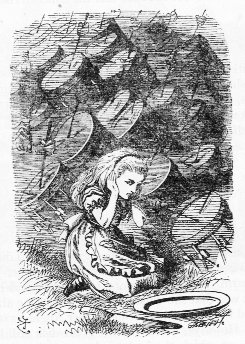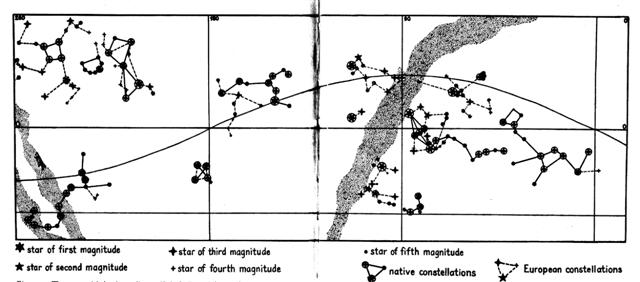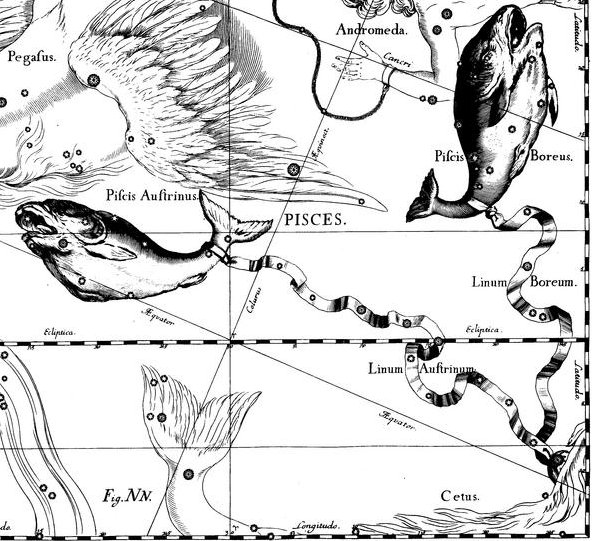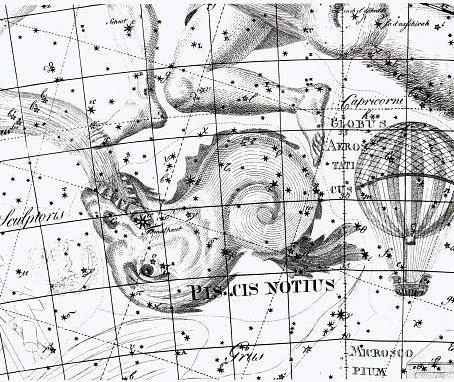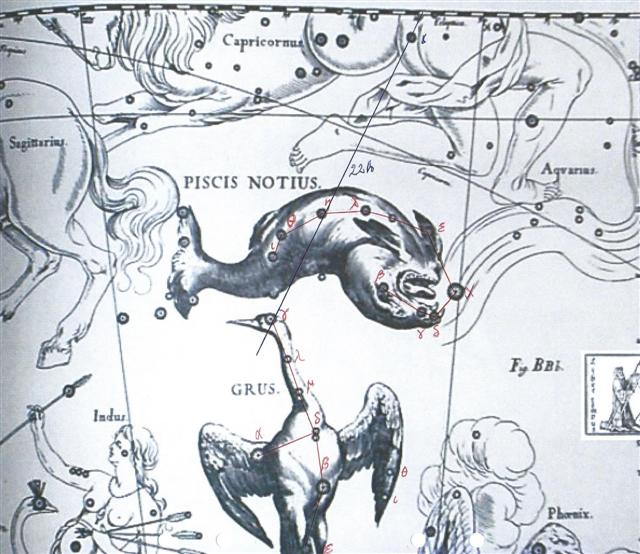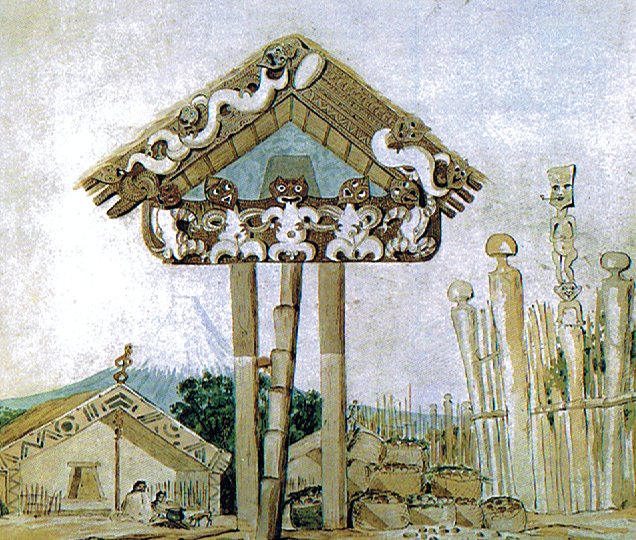There was a pair of stars which defined where the Lion changed his character (his 'sex') from dry (high up) to watery (low down) - after having ingested so much water that he had to 'urinate'. After midsummer the gradually lower positions of the Sun would eventually force downpour because cooler air cannot carry as much water as hot air.
... It was 4 August 1968, and it was the feast day of Saint Dominic, patron of Santo Domingo Pueblo, southwest of Santa Fe. At one end of the hot, dusty plaza, a Dominican priest watched nervously as several hundred dancers arranged in two long rows pounded the earth with their moccasined feet as a mighty, collective prayer for rain, accompanied by the powerful baritone singing of a chorus and the beat of drums. As my family and I viewed this, the largest and in some ways the most impressive Native American public ceremony, a tiny cloud over the Jémez Mountains to the northwest got larger and larger, eventually filling up the sky; at last the storm broke, and the sky was crisscrossed by lightning and the pueblo resounded with peals of rolling thunder ...
Their names were Zosma and Coxa - indicating the place (plate) for this fundamental transformation:
The rising (climbing, kake) 'bird' (manu) had been caught in (swallowed by) the mouth of a fish (Fom-al-Haut).
... 'My child', said Makea now in a tone of deep sorrow, 'there has been a bad omen for us. When I performed the tohi ceremony over you I missed out a part of the prayers. I remembered it too late. I am afraid this means that you are going to die.' 'What's she like, Hine nui te Po?' asked Maui. 'Look over there', said Makea, pointing to the ice-cold mountains beneath the flaming clouds of sunset. 'What you see there is Hine nui, flashing where the sky meets the earth. Her body is like a woman's, but the pupils of her eyes are greenstone and her hair is kelp. Her mouth is that of a barracuda, and in the place where men enter her she has sharp teeth of obsidian and greenstone.' ...
Kake. Kakea, to come near, to embark. P Pau.: kake, to climb, to ascend. Mgv.: kake, the arrival of shoals of spawning fish. Mq.: kake, to climb up a valley. Ta.: ae, to climb, to ascend. Churchill. Mgv.: kake, to strike on an ocean reef. Ta.: ae, to strand. Churchill. Sa.: a'e, upward, to go up; sa'e, to elevate one leg, as in the act of falling in a club match; 'a'e, to ascend, to rise. To.: hake, upward, to ascend. Fu.: ake, up, to ascend; sake, ro raise the leg at one in derision or mockery; kake, to climb, to ascend. Niuē: hake, up, going up. Uvea: ake, up; kake, to go up. Ma.: ake, upward; kake, to climb, to ascend. Mq.: ake, on high, upward; kake, to ascend. Mgv.: ake, upward. Bukabuka: ake, up. Ta.: ae, up, to go up, to ascend, to climb. Ha.: ae, to raise, to lift up, to mount. Fotuna: no-jikijiake, to lift up; no-tukake, to stand upright. Nukuoro: kake, to go up. Nuguria: kake, up; hanage, northwest. Rapanui: kake a, to go abroad. Vi.: thake, upward; thaketa, to dig or lift up. Churchill 2.
There were only a few days from Fomalhaut to Simmah:
Surely the creator of the G text measured out the distance from manu kake in Ga3-1 to where he was swallowed:
In the C text we can read:
Puoko. 1. Head; tagata puoko hiohio, hard-headed, opinionated person. 2. Skull (also: pakahera puoko). Vanaga. Head, skull, crown of a hat; puoko garuru, headache; kiri puoko, scalp. T. Mgv.: upoko, head (men or animals). Mq.: upoko, upoó, head. Ta.: upoó, human head. (Sa.: ulupo'o, skull. To.: uluboko, id. Niuē: ulupoko, id.) Churchill.
|
||||||||||||||||||||||||||||||||||||||||||||||||||||||||||||||||||||||||||||||||||||||||||||||||||||||||||||||||||||||||||||||||||||||||||||||||||||||||||||||||||||||

